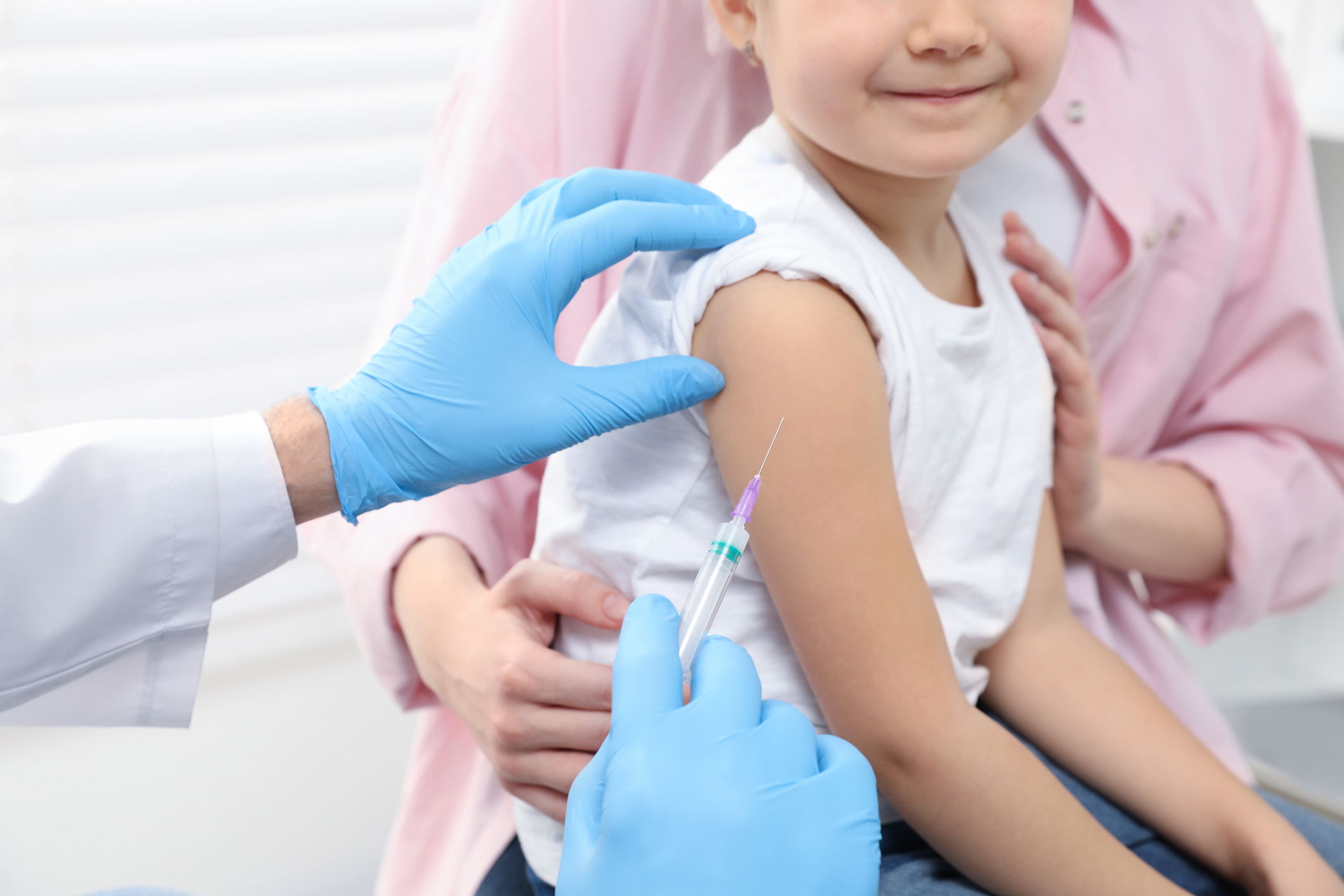As children head back to school, they encounter a variety of germs and illnesses, making this time of year especially critical for their health. Vaccinations not only safeguard your child but also contribute to the well-being of their classmates and the broader community.
Vaccines are one of the most effective ways to protect children from life-threatening diseases. In an age where misinformation has fueled fear and skepticism about vaccines, it is important to emphasize their lifesaving benefits. Vaccines protect against dangerous illnesses like measles, whooping cough, and meningitis, which can have severe complications or even lead to death if left unchecked. By vaccinating children, we are not only safeguarding their health but also protecting vulnerable members of the community who cannot be vaccinated due to medical reasons. The science is compelling: vaccines save lives and are critical in preventing the spread of diseases that once devastated families and communities.
Why Immunizations Are Crucial During Back-to-School and Cold & Flu Season
- Protection Against Contagious Diseases: Schools are environments where children are in close contact, making it easier for infectious diseases to spread. Vaccinations help protect against common illnesses like the flu, measles, and whooping cough, reducing the chances of outbreaks.
- Boosting Immunity During Peak Illness Season: The cold and flu season can bring an increase in respiratory infections. The flu vaccine is vital during this time, as it significantly reduces the risk of severe illness, hospitalization, and complications.
- Preventing Absences and Disruptions: Illnesses can lead to missed school days, affecting your child’s education and routine. Immunizations help keep your child healthy and in school, ensuring they do not fall behind academically.
- Community Immunity in the Classroom: When most children in a classroom are vaccinated, it creates a protective barrier, helping to prevent the spread of contagious diseases. This is especially important for children with compromised immune systems who cannot be vaccinated.
- Peace of Mind for Parents: Knowing your child is protected through vaccinations provides peace of mind as they return to school and interact with peers. You can feel confident that you’re taking the right steps to safeguard their health during a time when exposure to illness is heightened.
Addressing Common Concerns
With the increase in seasonal illnesses, some parents may have concerns about vaccines. Here’s what you need to know:
- Flu Vaccine: The flu vaccine is updated annually to match circulating strains, making it a critical component of your child’s back-to-school health plan. It is recommended for all children over six months of age.
- Multiple Vaccines: If your child needs several vaccines, do not worry about overwhelming their immune system. The vaccination schedule is designed to be safe and effective, even during busy times like the back-to-school period.
- Cold Weather Myths: While some believe cold weather alone causes illness, it is the increased time spent indoors in close quarters that contributes to the spread of viruses. Vaccines help mitigate this risk by boosting your child’s immunity. That’s why even in Florida, vaccines are crucial during the cold and flu season.
In Florida, children must meet specific vaccination requirements to attend school, as set by the Florida Department of Health. Below is a list of the vaccines required for children entering childcare, preschool, kindergarten, and grades K-12 in Florida:
Required Vaccines for Childcare and Preschool:
- DTaP (Diphtheria, Tetanus, and Pertussis)
- IPV (Inactivated Polio Vaccine)
- MMR (Measles, Mumps, and Rubella)
- Hib (Haemophilus influenzae type b)
- Hepatitis B
- PCV (Pneumococcal Conjugate Vaccine)
- Varicella (Chickenpox)
Required Vaccines for Kindergarten through 12th Grade:
Kindergarten through 5th Grade:
- DTaP (Diphtheria, Tetanus, and Pertussis): 5 doses
- IPV (Inactivated Polio Vaccine): 4 doses
- MMR (Measles, Mumps, and Rubella): 2 doses
- Hepatitis B: 3 doses
- Varicella (Chickenpox): 2 doses
Grades 6 through 12:
- DTaP (Diphtheria, Tetanus, and Pertussis): Booster dose required if not given at age 11 or older.
- IPV (Inactivated Polio Vaccine): 4 doses, if not already given.
- MMR (Measles, Mumps, and Rubella): 2 doses
- Hepatitis B: 3 doses
- Varicella (Chickenpox): 2 doses
- Tdap (Tetanus, Diphtheria, and Pertussis) Booster: Required before entering 7th grade.
Additional Recommendations:
- HPV (Human Papillomavirus Vaccine): Recommended starting at age 9 to prevent HPV-related cancers.
- Meningococcal Vaccine: Recommended for adolescents to protect against meningitis, and it is required by most colleges.
- RSV (Respiratory Syncytial Virus) Vaccine: The RSV vaccine represents a significant advancement in protecting children from serious respiratory infections. While it may not be part of the standard vaccination schedule yet, it is a valuable option for all newborns. RSV can lead to severe respiratory illness in young children, especially those under two years old. The vaccine helps reduce the risk of hospitalization and serious complications.
- Hepatitis A vaccine: The Hep A vaccine prevents hepatitis A, a serious liver disease. The vaccine is typically given in two doses, with the second dose given 6 to 18 months after the first. First dose is usually given at 12 through 23 months of age, and the second dose is given at least 6 months after the first dose.
- Rotavirus Vaccine: The rotavirus vaccine is a liquid given orally to protect children from rotavirus, a common cause of diarrhea and vomiting in infants and young children.
Parents should consult with their TopLine MD Alliance-affiliated pediatrician to ensure their child is up to date with all required vaccinations. By ensuring your child is fully immunized, you are helping to create a safer, healthier school environment. Immunizations are a powerful tool in keeping your child and their classmates protected, especially during the back-to-school rush and the upcoming cold and flu season.
For parents looking to learn more about the importance of vaccines, trusted resources are available to provide accurate, up-to-date information. The American Academy of Pediatrics (AAP) offers comprehensive guidance on childhood immunizations, ensuring your child receives the best protection possible. The Centers for Disease Control and Prevention (CDC) is another reliable source, providing detailed vaccine schedules, safety information, and answers to common questions. Additionally, the Children’s Hospital of Philadelphia (CHOP) has a Vaccine Education Center with easy-to-understand materials on the benefits of vaccines and how they work. These websites are excellent tools for parents to make informed decisions about their child’s health.
Various TopLine MD Alliance affiliated pediatricians contributed to writing this article. Below is the list of these physicians who are committed to giving patients and parents valuable information to make informed decisions.
Dr. Kimberly Dal Porto is a proud member of the TopLine MD Alliance practicing Pediatrics in Jacksonville.
Dr. Michael Bruck is a proud member of the TopLine MD Alliance practicing Pediatric Care in Palm Beach County.
Dr. Juan Carlos Millon is a proud member of the TopLine MD Alliance practicing Pediatric Care in Miami-Dade and Broward County.
Dr. Norina Ocampo is a proud member of the TopLine MD Alliance practicing Pediatric Care in Palm Beach County.
Dr. Lawrence Bergman is a proud member of the TopLine MD Alliance practicing Pediatric Care in Palm Beach County.
Dr. Gomathy Mohan is a proud member of the TopLine MD Alliance practicing Pediatric Care in Palm Beach County.
Dr. Alina Di Liddo is a proud member of the TopLine MD Alliance practicing Pediatric Care in Broward County.
The TopLine MD Alliance is an association of independent physicians and medical practice groups who are committed to providing a higher standard of healthcare services. The members of the TopLine MD Alliance have no legal or financial relationship with one another. The TopLine MD Alliance brand has no formal corporate, financial or legal ties to any of the affiliated physicians or practice groups.




